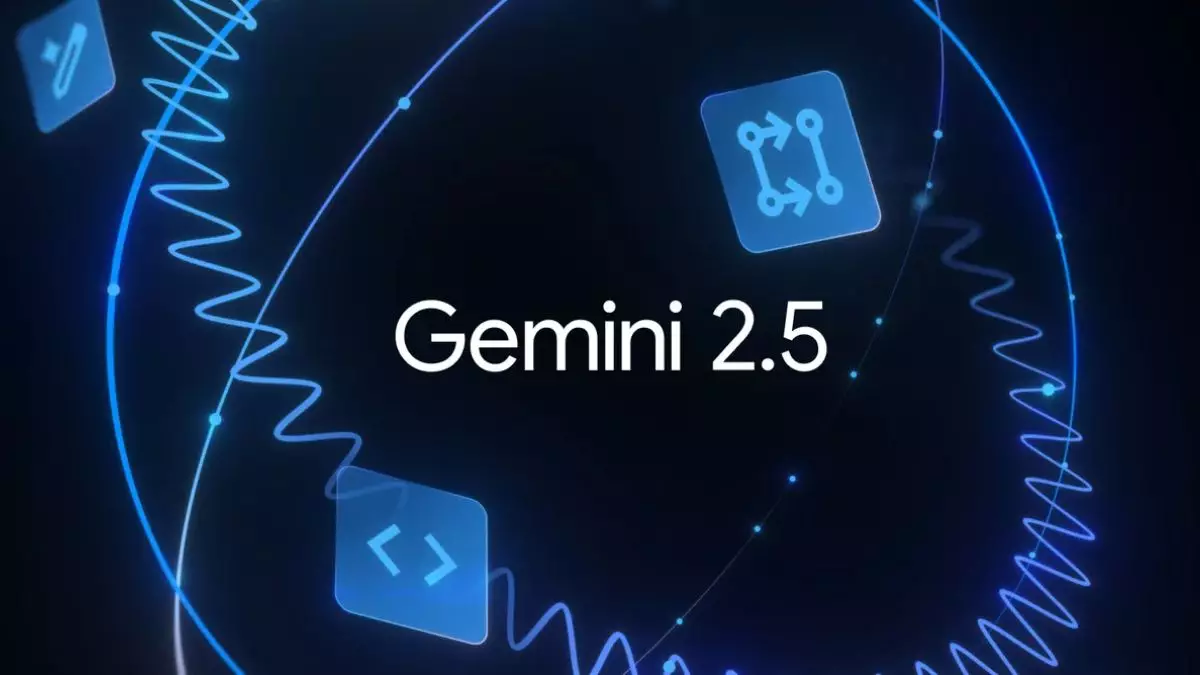On a momentous Tuesday, Google unveiled its Gemini 2.5 family of artificial intelligence models, firmly establishing a new benchmark in the ever-competitive landscape of AI technologies. This latest rollout, which introduces the Gemini 2.5 Pro and Flash models, marks an incredibly significant step forward for both developers and everyday users alike. Given the increasing reliance on artificial intelligence across various sectors, Google’s decision to make the Pro model accessible to free-tier users is both laudable and exciting. However, one must consider the implications of such an expansion—namely, how the democratization of advanced AI technology can raise ethical concerns and sharpen competitive edges.
The Promise of Accessibility and Performance
The hallmark of Google’s latest endeavor is the accessibility that it offers. Expanding the reach of the Gemini Pro model to users on the free tier implies a strategic intent to make sophisticated AI tools more ubiquitous. However, this raises a compelling question about equity: Does making powerful technologies widely available truly benefit society, or does it merely widen the gap between tech-savvy users and those unfamiliar with such tools? While Google emphasizes that the daily prompt limit will vary between paid and free tiers, the basic access itself signifies a shift towards a more inclusive approach to artificial intelligence.
Furthermore, the introduction of Gemini 2.5 Flash-Lite, which is touted as Google’s fastest and most cost-effective model, highlights the company’s commitment to optimizing performance without compromising accessibility. The enhanced capabilities in coding, science, mathematics, and reasoning demonstrate Google’s understanding of user needs in real-time applications. Yet, the crucial variables remain: Will these advancements truly serve the populace, or will they become tools of exacerbation in an already polarized environment?
The Ethical Dilemma of Empowerment vs. Responsibility
One must tread cautiously amidst this wave of new technology. With great power comes great responsibility; a sentiment that seems all too often neglected in the relentless pursuit of innovation. For every enhancement brought forth by models like Gemini 2.5, there lurks the possibility of misuse. The expansive features, such as interfacing with Google Search and code execution tools, could just as easily foster environments for manipulation or deception. The question that remains is: At what point does empowering users through technology tip into recklessness?
Furthermore, with functionalities that include personalization by tapping into users’ Google Search history, potential privacy abuses could ensue. While personalization may enhance user experience, is the trade-off of sharing one’s data worth it? It’s crucial for Google to prioritize transparency and provide robust safeguards to ensure that accessibility does not translate into exploitation.
Implications for Development and Innovation
The implications of the Gemini 2.5 rollout extend far beyond individual user experience. By launching this advanced AI toolkit, Google is positioning itself at the forefront of the industry while simultaneously energizing the larger tech ecosystem. Developers are now faced with unprecedented capabilities for their applications, enhancing everything from standard business operations to advanced research. Industries will likely evolve, leading to innovative solutions that could redefine how we engage with technology.
However, with this empowerment comes an urgent need for regulatory oversight. Unfettered access to potent tools can lead to unintended consequences. As we venture further into a world supplemented by algorithms, it becomes paramount to establish guidelines that govern ethical AI usage. In this context, the responsibility lies not only with Google but with the entire tech community to foster a landscape that champions ethical considerations over profit-driven motives.
A Future Shaped by Collaboration, Not Competition
Google’s Gemini 2.5 models herald an exciting future for AI, yet adopting a solely competitive mindset risks overshadowing its transformative potential. Emphasizing collaboration among tech giants may yield more innovative solutions that benefit a broader audience instead of a select few. By prioritizing ethical responsibility, Google can lead a charge towards a future where AI augments human capability, aligns with societal values, and eschews divisiveness.
As society grapples with the ramifications of advanced technology, the advantages offered by the Gemini 2.5 family recognize that our focus should be on responsible innovation—balancing the scales between accessibility and entrenchment. The revolution is underway, but it needs the guiding hand of conscience to navigate the tumultuous waters ahead.

Leave a Reply